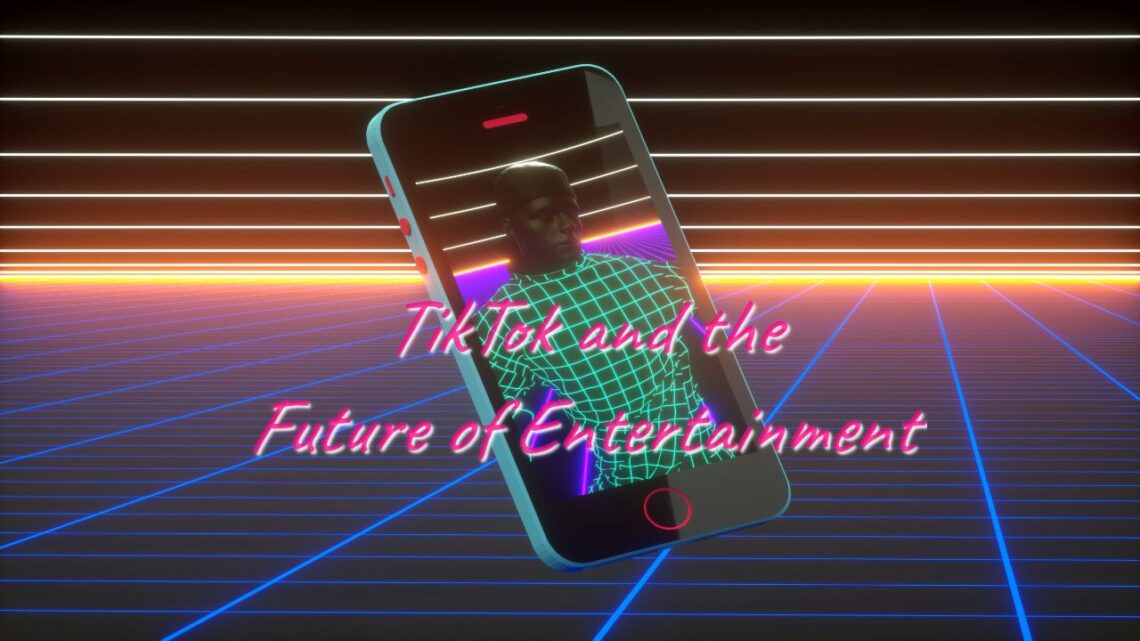
TikTok and the Future of Entertainment
TikTok, the popular short-form video platform, has taken the world by storm since its launch in 2016. With its addictive and easily consumable content, TikTok has quickly become a cultural phenomenon, particularly among the younger generation. In this article, we will explore the impact of TikTok on the entertainment industry and discuss its potential role in shaping the future of entertainment.
The Rise of TikTok

TikTok’s rise to prominence, fueled by various factors such as its user-friendly interface, advanced video editing tools, and algorithmic content suggestions, has been nothing short of remarkable. The app empowers users to create and share concise videos, typically ranging from 15 to 60 seconds, covering a wide range of topics, including lip-syncing, dance challenges, comedy skits, and educational content. These videos, along with the option to buy TikTok views, have contributed significantly to the app’s immense popularity. With over a billion users worldwide, TikTok has solidified its position as one of the fastest-growing social media platforms to date.
The Democratization of Content Creation
One of TikTok’s most significant contributions to the entertainment landscape is its ability to democratize content creation. Unlike traditional media platforms, TikTok provides an equal opportunity for anyone to showcase their creativity and talent. It has given rise to a new generation of content creators who have gained fame and recognition through their TikTok videos and TikTok comments. This shift in power from traditional gatekeepers to individual creators has disrupted the traditional entertainment industry and empowered individuals to shape their own entertainment careers.
Influencer Culture and Brand Collaborations

TikTok has propelled the growth of influencer culture to new heights. Influencers, with their large and engaged followings, have become a crucial part of marketing strategies for brands across industries. TikTok’s algorithm enables influencers to gain visibility and attract partnerships, leading to lucrative brand collaborations. This symbiotic relationship between influencers and brands has transformed the way products are promoted and has opened up new avenues for monetization in the entertainment industry.
Interactive and Immersive Experiences
TikTok’s emphasis on short, engaging videos has pushed the boundaries of interactive and immersive experiences. The platform’s features, such as duets, stitches, and challenges, encourage user participation and collaboration. Users can engage with content creators in real time, creating a sense of community and fostering social connections. This interactive nature of TikTok has the potential to revolutionize traditional entertainment formats by blurring the lines between creators and consumers, making entertainment a more participatory experience.
Algorithmic Personalization
TikTok’s success can be largely attributed to its powerful algorithm, which curates content based on user preferences and behavior. By analyzing user interactions, the algorithm presents a personalized feed tailored to individual tastes. This level of personalization has significant implications for the future of entertainment. It challenges the traditional notion of mass media and opens up possibilities for niche content to find its audience. As algorithms become more sophisticated, entertainment consumption will become increasingly personalized, catering to individual preferences like never before.
Challenges and Controversies
Despite its success, TikTok has faced its fair share of challenges and controversies. Concerns over data privacy, misinformation, and the potential for harmful content have raised questions about the platform’s impact on society. Governments and regulatory bodies have stepped in to address these issues, leading to increased scrutiny and potential changes in how TikTok operates. The platform’s ability to adapt to these challenges will determine its longevity and influence in the future.
TikTok has undoubtedly disrupted the entertainment industry, offering a fresh and innovative approach to content creation and consumption. Its rise to prominence has shown the power of short-form, user-generated videos in capturing the attention and engagement of audiences. As TikTok continues to evolve and adapt, it has the potential to shape the future of entertainment by promoting democratization, interactivity, personalization, and new forms of creativity. The challenges it faces will be crucial in determining whether TikTok can sustain its success and remain a dominant force in the entertainment landscape.





